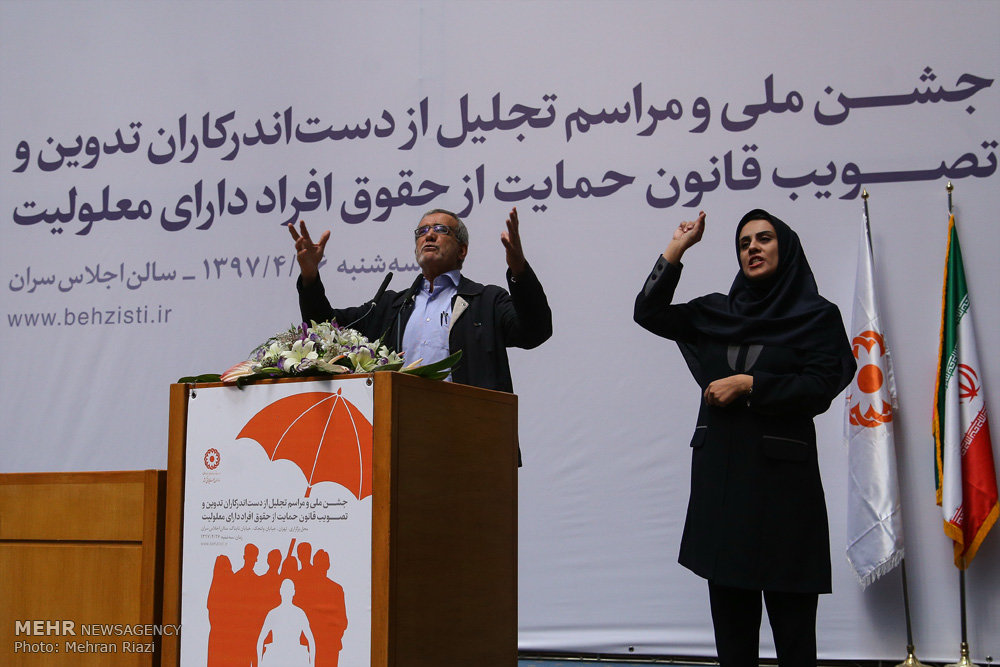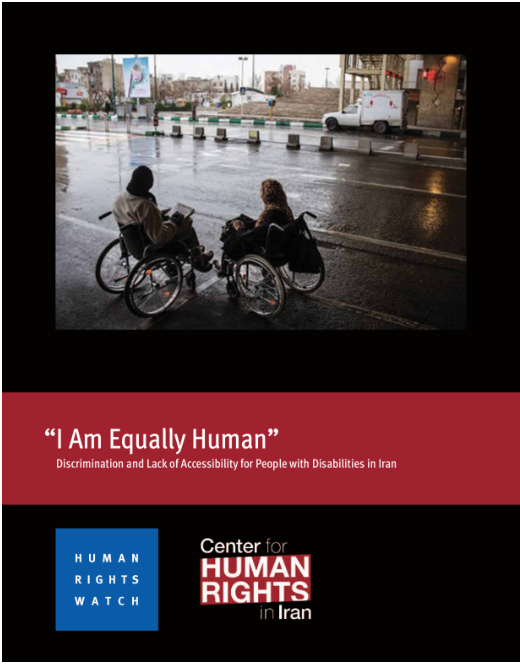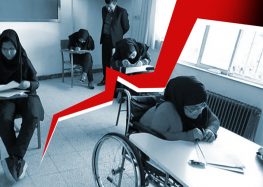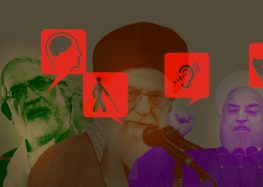Activists Note Serious Failings by Iranian Organization Tasked With Supporting People With Disabilities
 As Iran’s State Welfare Organization (SWO) marked its 38th birthday, several people with disabilities based in the country told the Center for Human Rights in Iran (CHRI) that the organization must undergo fundamental reform in order to carry out its mission.
As Iran’s State Welfare Organization (SWO) marked its 38th birthday, several people with disabilities based in the country told the Center for Human Rights in Iran (CHRI) that the organization must undergo fundamental reform in order to carry out its mission.
Pouya, a disability rights activist who requested anonymity for security reasons, said: “The welfare organization does not have a sufficient budget or the human resources to handle a mountain of responsibilities. Destitute women, child laborers and street workers, drug addicts, victims of violence among women and children, the elderly and persons with disabilities have all been entrusted to the welfare organization even though each of these groups requires specialized expertise and equipment.”
The names of the people who provided testimony to CHRI for this report have been changed due to the sensitivities in Iran around speaking to foreign media outlets.
“Putting people with disabilities in the same basket as victims of social problems or trying to prevent disabilities at the same time as stopping girls from running away from home, or confronting addiction or divorce reflects the belief in a medical perspective on disabilities that is not compatible with the convention and must be changed,” he added.
Iran ratified the UN’s Convention on the Rights of Persons with Disabilities (CRPD) in 2009 but its domestic laws and practices are still not compliant with the treaty’s recommended standards.

The 72-page report, “‘I Am Equally Human’: Discrimination and Lack of Accessibility for People with Disabilities in Iran,” documents the everyday barriers people with disabilities meet when going to government offices, healthcare centers, and when using public transportation.
People with disabilities in Iran are denied adequate access to transportation, public spaces, facilities, and buildings, as well as effective access to governmental services, education and legal protections in the justice system. They also face severe employment discrimination.
In his message on the occasion of Iran’s “Welfare Week” (July 12-19, 2018), the deputy director of the SWO, Anoushirvan Mohseni Bandpey, described the organization as the most important caregiver in the country.
In order to live an independent and dignified life within society, persons with disabilities should have access to individualized means and services including, for example, assistive equipment and technologies, comprehensive habilitation and rehabilitation services, personal assistance services, as well as adequate disability pensions, if needed. However, research by CHRI and Human Rights Watch has uncovered serious shortcomings on the part of the SWO in providing these services.
The report documents abusive treatment towards persons with disabilities in Iran and their families, lack of sufficient and useful information regarding available services, problems with accessing rehabilitation services and support equipment, and an inadequate disability pension system.
Among all the problems, the inappropriate and sometimes insulting behavior of social workers towards people with disabilities is one of the most important challenges facing the organization.
For example, when “Narges” went to an SWO office in Tehran to order a new hearing aid for her hearing-impaired daughter, she was mistreated by a social worker.
“The social worker became angry and said it was not his problem that my daughter could not hear and said that I have to wait as long as necessary,” Narges told CHRI.
In another incident, 24-year-old “Arash,” who cannot use a manual wheelchair because of muscle weakness, asked for an electric wheelchair but the social worker in charge responded that one should not expect the government to provide “luxury items.”
“I felt very disappointed and humiliated,” he said. “I think these people have no understanding of disability and what it really means.”
The lack of proper standards for hiring social workers, inadequate training, and lack of supervision are some reasons why the SWO is failing Iranian people with disabilities.
“Hamed” is a 25-year-old blind man. Here’s how he described his experience with the SWO: “The problem is that individuals who work as social workers are mostly unsuitable for this profession. Many of them do not have university education or they have studied unrelated subjects such as history or literature. Moreover, people seeking jobs as social workers are not evaluated for their psychological condition or personality.”
A shortage of social workers at the SWO and piling cases assigned to overextended staff has resulted in a severe drop in the quality of services the SWO provides to people with disabilities.
In many areas in Iran, there are insufficient numbers of SWO social workers. Although national standards dictate that each social worker should have no more than 150 cases, in practice many social workers have much heavier caseloads.
For example, in the southern part of Kerman province, each social worker has around 1,500 cases. In Ghazvin province, there are fewer than 20 social workers for approximately 20,000 persons with disabilities.
The low number of social workers has a direct impact on the quality of social work service.
The State Welfare Organization of Iran was established on July 15, 1980, with the merger of 15 different agencies and organizations to provide solutions for social ailments, offer support and rehabilitation services to people with disabilities, and meet the basic needs of low-income individuals.
At the time, the decision to combine so many agencies with varied missions came under criticism. Opponents of the merger pointed out that the quality of service to persons with disabilities would suffer due to stretched and inadequate resources.
When Iran joined the Convention on the Rights of Persons with Disabilities in 2009, the SWO was put in charge of its implementation along with the Martyrs and Veterans Affairs Foundation, an organization operating under the supreme leader.
This placed more responsibilities on the SWO’s already sagging shoulders and created a need for an upgrade to its services for people with disabilities that has gone unmet.
According to Pouya, “The welfare organization does not have the necessary administrative structure or financial and human resources to carry out its international obligations. For that reason, the UN has criticized Iran’s treatment of people with disabilities in almost every aspect.”
Kayvan Davatgaran, the director of the SWO’s rehabilitation center for people with disabilities, told the state-run Iranian Republic News Agency in November 2016, “The welfare organization’s volume of work is more than four ministries combined and its budget, human resources, and structure are not consistent with expectations.”






